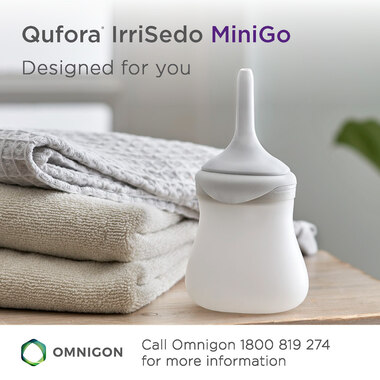Continence NZ Conference 2023
After a hiatus of almost a decade, it was our pleasure to host our much-anticipated National Conference in Auckland in September 2023. We welcomed almost 100 people working in continence care for 2 days to discuss the latest research and trends in continence care for both adults and children. We are so grateful for the support of our event sponsors, Auckland Unlimited, Lion Foundation, SPQ Limited and Confitex, as well as the speakers and exhibitors who featured at the event. After such a long period with no face-to-face events or education due to COVID‑19, it was fantastic to reconnect with our members and industry partners. Visit continencenzconference.org for photos from the event; we thank you for your support.
Community and online education
Our popular Toilet Tactic webinar series ran from August to November 2023 with children’s continence nurse Lisa Smith. The series covers topics such as bowel and bladder health, toilet training, constipation, bedwetting, daytime wetting, stool withholding and toilet training for children with additional needs. It’s free to register for one or all our sessions. We will have further webinars for both adults and children running throughout the year. Visit continence.org.nz/pages/Upcoming-Community-Education/301 for details of our webinars.
Online children’s continence clinics for the Auckland region
In response to a large number of calls to the Continence NZ helpline, Continence NZ is piloting a new offering of online clinics. These clinics are for whānau (families) living in the Auckland area with children experiencing issues with toilet training, constipation, stool withholding, and daytime or night-time wetting. Families receive limited support for these issues through their local GP and services such as Plunket. These are the first clinics of their kind for Continence NZ and consist of an information session for six to eight wwhānau, then a one-on-one follow up with a children’s continence nurse.
Pregnancy guide
Continence NZ has developed a guide to pelvic health before and during pregnancy which will be launched over the summer. Pregnancy and childbirth are an ideal opportunity for risk assessment and prevention strategies to be implemented with women because research indicates that this life stage corresponds with major risk factors for pelvic floor dysfunction. New Zealand does not currently have enough pelvic health physiotherapists working in publicly funded healthcare to support every pregnant woman. The costs associated with private pelvic health physiotherapy are out of reach of many expectant whānau. The guide will provide comprehensive, clear and practical information about bladder, bowel and pelvic health before, during and after pregnancy for all birthing parents. Visit continencenz.org.nz for further information.
Research update
Last summer, Continence NZ engaged with nearly 300 members of our community in the most comprehensive research project we have undertaken to date. The research aim was to better understand the experiences of those living with incontinence in Aotearoa and how we can support them. We engaged with our members, health professionals, people living with incontinence and their whānau to understand their experiences and how Continence NZ can help.
The research highlighted incontinence as a growing issue in New Zealand, which impacts the quality of life of nearly 1.25 million New Zealanders. The environmental cost of incontinence product disposal is estimated at NZ$14.9 million per year. Incontinence can be improved or resolved in many cases with the aid of continence nurse specialists and pelvic health physiotherapists. However, many New Zealanders are not receiving the treatment they need due to shortages in this specialist care. An estimated investment of NZ$6.4 million per year into pelvic health nurses and pelvic health physiotherapists would result in NZ$8.9 million in savings, producing a net benefit of NZ$2.5 million per year. Importantly, it would enable New Zealanders with incontinence to continue to live their best lives. This is achieved by lessening the economic, social and personal impact that is often associated with incontinence. We are incredibly grateful to all those who participated in the research. Visit communityresearch.org.nz/research/continence-nz-service-users-research-and-service-review to see the full research.
Author(s)
Laura Fear
CEO, Continence NZ




